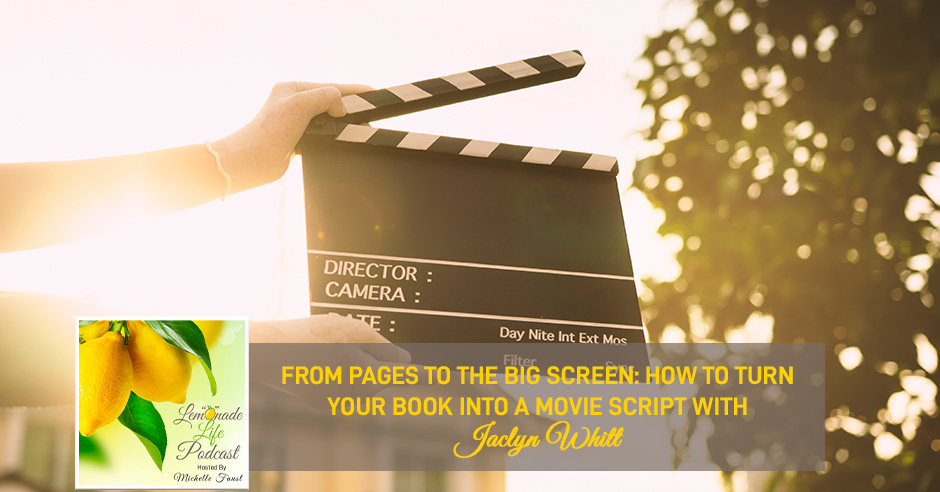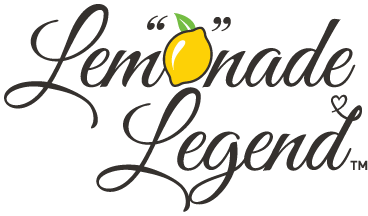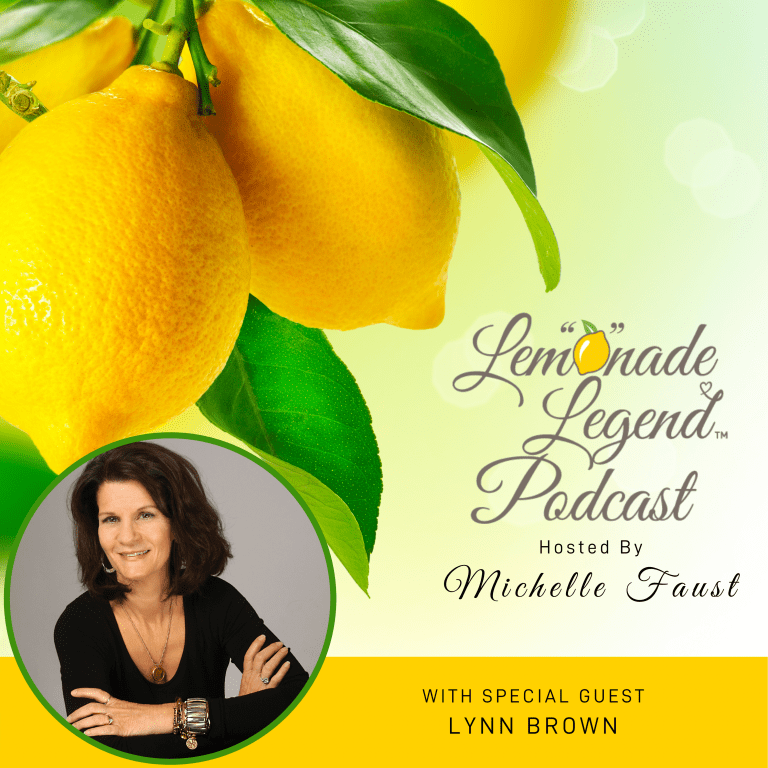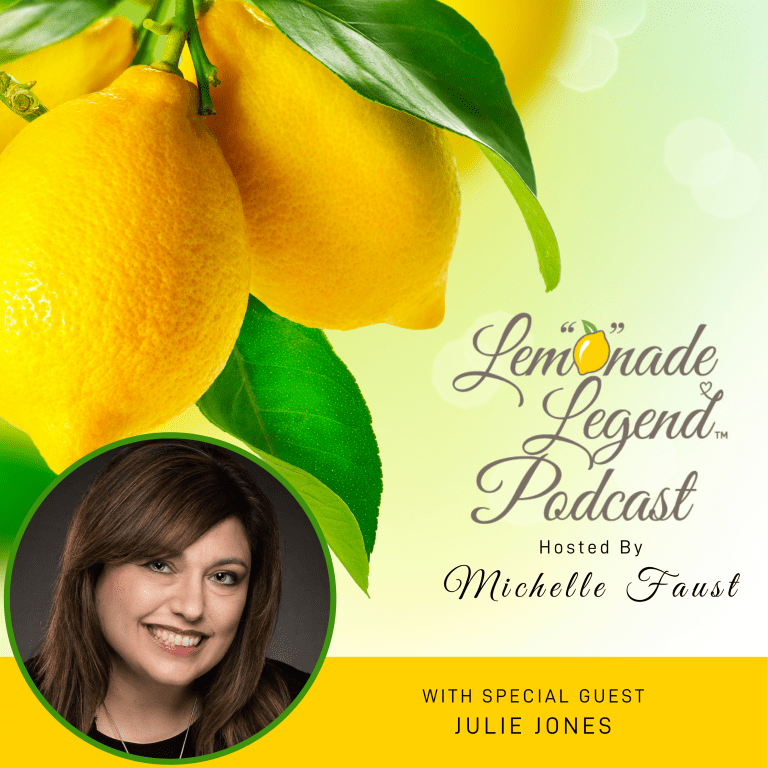
Whether we say it out loud or secretly wish for it, deep down we authors want to see our stories on the big screen. But it’s a totally different thing to write for film. Today, we have someone with us to share her expertise on the matter. Jaclyn Whitt is an award-winning screenwriter and the Co-Director of Family Friendly Screenwriting Academy. In this conversation, she shares some of her expertise as a professional screenwriter on how anyone can turn their book or story into a movie script. She unlocks the mystery, shows the process, and winning combinations to increase success in submitting your screenplay to a producer. It’s an exciting opportunity to put your story out on a different stage. Tune in and learn how to do it!
—
Watch the episode here
Listen to the podcast here
From Pages To The Big Screen: How To Turn Your Book Into A Movie Script With Jaclyn Whitt
I’m here with Jaclyn with the Family Friendly Screenwriting Academy. I’m super excited because we have got some different things to talk about. Jaclyn is formerly from the great country of Canada, now living in Mexico. I bet it’s a little warmer there. She and her husband, Jeff, are living in Mexico and running their Screenwriting Academy.
I had the most fascinating conversation with Jeff when we met in Denver about the idea of getting our stories up on the big screen and how we can do that. That’s what we do here in the show, get people’s stories out in writing, publishing books and magazines, and a show. Now, we are venturing into how we can get those stories and a script for the big screen. Tell us a little bit about that.
An author has three paths in order to get it onto the screen. They can either pitch their book to a producer or they can hire a screenwriter to write the script, pitch that to a producer, or write it themselves and pitch that to a producer. Each one, I’m going to briefly go over this because we have other things we want to get into, but this is brief.
If you do pitch your book to a producer, let’s say they love it. The thing that’s going to happen is they are going to choose their writer to put on it, and you lose creative control pretty much entirely. Depending on what producer you get, some producers will be great and they will work with you, but technically, you have done your part and then they are going to take it from there, and so you do lose some of that. If you hire a screenwriter or you write it yourself, you are going to maintain that creative control so that the script in the end is going to reflect the story that you wanted to tell.
We are going to want to know what’s the best way to try to approach things. This sounds like you have some options based on how much work you want to hand over to somebody else or have much control you want to maintain. The thing that I wanted to talk about initially to myself, writing a book that’s not scary, but writing a script is a little scarier. That happens to other people. When we were talking, you gave me the sense that it’s a doable thing. It’s not something that some amazing Hollywood person goes out and does, but it’s something that I, my clients, or anybody who wants to turn their book or story into a script can do.
I will explain to you that some people think, “It’s such a big project.” If I’m talking to authors, let me talk some very simple things here. Let’s say that your book is 50,000 words. That’s a five-hour audiobook. That’s longer than a movie. You have already taken on a project that is bigger than writing a movie. In screenwriting, we don’t count words. We count pages because there’s a certain way that you format things. The formatting might seem intimidating, but it’s something you learn over a weekend.
It’s not that difficult to adjust to a different way of formatting words on a page. It all makes sense anyway when you realize it. Each page equals one minute of screen time on average. That’s why we have a certain way to format things. With that also, that means if you want to write a movie that’s an hour and a half, you write a 90-page script. It’s not that complicated, and that’s not very long. How many pages is your book? Go and check.

Movie Script: In screenwriting we don’t count words, we count Pages because there’s a certain way that you format things. Each page equals one minute of screen time on average.
We work with a minimum of 100 pages for a book, and the reason for that is simply because you need at least 100 pages. That’s fine. It can fit your title out. That’s the rule there. In that context, 90 pages versus a minimum of 100 pages is not a big deal, but I also know that there is a format that’s very important. We talked about it a little bit, that you have to turn your writing into visual writing. How is it going to project in a visual sense?
That is the biggest difference between writing a book and writing a screenplay. When you are writing a book, show don’t tell, but when you are writing a movie, it’s even more. Everything has to be perceived through what you see and hear and that is it. There is no inside information.
When you're writing a book, it’s show, don't tell. But when you're writing a movie, it's even more. Share on XWould you recommend if somebody is writing it off, they are using a book? Is there a big difference between already having the book written or having it in your mind that you are going to want to turn this book into a script? Are you going to write it a little bit differently or is it the taking from the book you have written and turning it into the script?
A lot of that is going to depend on a few factors, which will make sense as I explain them. One of the other differences between writing a book and writing a screenplay is that we have to keep budget in mind when we write a movie. That also means I have to keep track of how many characters I have because every character means adding another actor that’s adding to the budget.
It’s not to say that I can’t have a lot of characters, but I have to choose them wisely. We want to make sure we are putting our money to its best use. Also, locations. Every location is a new set, which means somebody has to go there, set everything up, the film, and then they have to take it all down. You can’t do more than one set in a day. The more settings you have the more days of filming. That also adds to the budget.
Those are two of the most important things that people have to think about. There are other things like children and animals, and those all add to the budget too. Again, it’s not to say you can’t include them, but you have to be conscious of what you are building when you are writing a screenplay. If there’s a book that has a lot of characters in it, you may have to combine some characters in order to make it fit for the screen.
That’s why sometimes when you read the book you are like, “That guy had 4 kids, but in the movie, he only had 1.” There you go. That’s a big part of why that happens and same with certain storylines. As I mentioned, if you have a 50,000-word book, that’s 5 hours. You have to cut that down to a 2-hour movie. Some things are going to give here and there.
Part of it, taking out all the inside information. That’s what I call it. That’s where you understand certain things because it’s written on the page but you don’t visually see it. Maybe she has this memory of something that happened in the past, which then affects her decision now. That’s not so easy to show in a movie unless you create that visual memory. When you take all of that information out so that it’s completely objective, then you are going to cut down quite a bit, but we still have to get it down further. Some of that means taking out a storyline or combining storylines or characters and things like that. That’s why the movie is often different than the book.
That explains a lot because I’m a pretty avid reader and I’m always thinking that when it’s like, “That wasn’t the way the book was. They left us out.” I understand the reality of going from a book to a movie is that you are going to have to change a few things or drop some things that don’t transfer to the screen. How do you help people to get their story out there? I’m sure you have different services. If I’m interested and I want to say, “Can you help me put this book into a screenplay?” What’s the first thing you are going to tell me to do?
If you want to write it yourself, then you have already gotten further in the process than a lot of people who have an idea and don’t have a book. As you were structuring your book, making the outline and the plot, and all of that, you already did a lot of that work. What you would do is instead of taking the book, you would go back to that work that you did at the beginning where you were plotting and creating that structure so that you could draw that out and then fit it into what works for the screen. For example, we still have an inciting incident. You know what that is. You have got that already in your structure plan. The break into Act 2. You tell me because I’m not in the author world as much. Are there Acts 1, 2, and 3 that’s a normal thing?
Similar. At least when I am coaching my authors in the process, I have them put together an outline first. That may be the book form of an Act 1, 2, and 3 putting it into that type of structure. You know you want to have an interesting grabbing beginning and introducing the character, and then what you are going to be talking about. You break it down into your subsections of this story. You have to wrap it all up in a nice and neat bow. I suppose you could take that outline and create it into more of an Act 1 and 2 type of thing.
If I said to you, “There’s this thing that happens that sparks a change in their normal. However, when they decide to go on that journey, when they take that step toward, ‘Yes, I’m doing this,’ and they head out, that is the beginning of Act 2 because you have got your beginning. That’s all your setup. The middle, that’s where the story happens. All of that growth happens there. The last part is the climax and the falling action thing.”
When I draw out these moments, in a movie, it’s very specific because it’s according to page count and time. You have twenty minutes to do all of your setup and then you need to be into that story. Otherwise, people are going to be like, “When is this going to go somewhere?” There are a little bit more rules. They do make sense, but you would be able to say, “That’s that moment where my character is all in and they are on this journey even though they don’t know what they are doing yet.”
Let’s say a story has 10, 11, or 12 chapters. The way I understand it is that maybe there are going to be 3 or 4 chapters that combine with Act 1, and then you might have the 3 or 4 that will be the main Act 2 part of the story. Again, you are going to wrap it up. It’s still the three acts, but we are taking the chapters and combining them in a way that’s a flow for strength.
To allow for the emotional journey that we want to take our audience on. Some of it is going to be like different terminology, but as soon as I explain this is the purpose for this particular element, you will be like, “I know what that is. Okay. We are good.”
Do you generally find that the people you work with say, “This is easier than I thought,” or have that revelation that it wasn’t this mysterious thing that I thought it was going to be?
Yes, once they take the class. If you try to go into it on your own and you have no experience with scripts at all like never even seen one, that’s going to be pretty daunting, and you might not know where to start. If you have someone who breaks it down and gives you that step-by-step and then sends you on your way, you are going to be in a much better position to do that.
That’s why I created my seven-week beginner screenwriting class. It’s called Screenwriting Foundations. The whole thing is to develop the story and the structure, to know exactly where you are going, to understand how the format works, and then get started. By the end of it, you need to write at least one scene so that I can read it and make sure you are on the right track, and then you can take it from there.
You will have your plot outline set up because that’s a part where a lot of people don’t get it. I’m sure when you are working with people that are wanting to write a book and they sit down and start writing and they didn’t plan anything first. They end up with writer’s block and it’s like, “Where’s your story going?” It’s the same thing.
You have a seven-week course. Is that more of a one-on-one or is that a group structure?
It’s a group but it’s not a large group. It maxes out at 15, but usually, there are about 7 in the class, which is a pretty good number because there’s enough time for people to ask questions. Sometimes they ask amazing questions and the other people are like, “Tell me the answer to that.” It’s good to work with a group.
Getting this feedback from others too, you are not depending on your coach or your director. You are hearing it from everybody who’s going to have a reaction one way or another. The more positive it is from everybody the more amazing. You know you are on the right track.
It’s bonding because sometimes people are stuck on something like, “How do I approach this?” Now you have got other people in the class who can say, “What about this idea?” We can brainstorm together to help get over that hurdle. I do want to say that whenever I read a screenplay that is written by an author, I can tell.
There is something, that even though they do have the objective approach where it’s all what you see and what you hear, there is still something unique about the way that they write that feels more entertaining than the typical script writer. When I write, it’s very dry a lot of the time in the sense that like, “Here’s my scene heading,” which means this is the location and the time of day that the scene takes place. You have an action line that says, “This is what’s happening,” and then we get to dialogue.
When I do my action lines where it’s like, “This is what’s happening,” I’m not that clever. I’m like, “Get to the point. Now let’s have the dialogue where the characters can shine,” because that’s my favorite part. When I read a script that was written by an author, those action lines are as entertaining as everything else.
You recommend having a lot of dialogue because oftentimes in writing, if a show does not have it, still we don’t always incorporate a lot of dialogue. What about the screenplay? Does that work best?
As it is a visual and audio experience, you do need to have dialogue. However, having said that, there is still a lot of room for nonverbal communication, which is one of my favorite things. I love getting my character to do something that we know what they are thinking and they haven’t said a word. I love that. Think of movies like A Quiet Place. There was almost no dialogue in that movie.
It was about a family who had to be quiet because there were monsters that were going to attack them, but the monsters only could attack because of what they heard. They couldn’t see anything. They were blind, so everybody had to be quiet. It was a very intense movie and you knew exactly what everybody was thinking and feeling the whole way through. There was character development. What you are going to find is it’s going to be according to your story and the way that your story and characters would play out.
Let’s talk about submitting it to a producer. To me, that sounds like the most intimidating that you are writing. Writing doesn’t intimidate me, but I think of it, “How do you eat the skin to pitch it?”
First, you have to know that you have something of value. The statistic for movies that are made that are based on a book is 27% something percent, almost 28%. That’s more than 1 in 4 movies is based on a book. This is putting you in a good position already. If your book is selling well, that’s also going to put you in a good position.
More than one in four movies is based on a book. This is actually putting you in a good position already, especially if your book is selling well. Share on XIf you have a large social media following or an emailing list you can announce to people what’s going on and continue to build that, also adding to the attractiveness of your project. As you have these things increasing, then a producer is going to put your script at the top of the list. They don’t necessarily know anything about it. Just the fact that you are already in a better position than all the other scripts.
What you are saying is that pre-marketing is very important to the success of your script being brought to you.
You are proving that you have an audience and that’s what they want.
It’s built in at least for the people that I work with because pre-marketing for the book is very important. We want people excited and waiting for the book to come out. In a sense, they have already done a lot of that work and now they are saying, “Did you like the book? We are going to make a movie out of it.”
It seems like in this day and age, it’s the perfect time too because it used to be the biggest screen Hollywood and the major TV network. Now we have all kinds of live streaming, YouTube, different kinds of opportunities, and platforms to put movies, TV shows, and whatnot. Is that a huge advantage now that we have over several years ago?
Yes, because in the past when Blockbuster was still a thing, when an independent movie was made and it didn’t go to the theater, it went straight to rental stores. A lot of the time, it was hard for them to market because unless people went to look for them or were open to watching something that they had not seen advertised on TV, then their movies would not get watched as much.
Independent movies were harder to get out there. Whereas now, complete opposite. On streaming, if you think about whichever streaming platform you watch, there are going to be exponentially more movies available on that streaming platform that did not go to the theater first than the ones that started in the theater.
There are so many platforms and there are different ways of distributing. Netflix is one, but if you distribute on Netflix, they are going to want to have exclusivity, which means that you wouldn’t be able to put it on the other platforms. What people are finding is that when they submit to all of the other platforms that are not exclusive, they end up making more money on their project than if had they submitted it to Netflix. Netflix is one of those things that people can brag about, but they are not going to make as much money on it.

Movie Script: Netflix is one of those things that people can brag about but they’re not going to make as much money on it.
Do you guide them along that entire path to help people understand that part of it? Which is a big part of it. That’s where you are making the money.
As part of the program that I have, we help them with their strategy for how to make themselves very attractive to producers and also understand which producer to pursue. The unfortunate reality is that the film industry is the Wild West sometimes. You can have a producer say, “I want to buy the right to make your movie.”
You are excited about that and now you are tied up in a contract, and if they don’t make the movie, there is nothing you can do about it. You cannot sell those rights to any other producer. If you didn’t pay attention to your contract, they could have that in perpetuity where maybe every few years they give you a few thousand dollars so that they have the rights to make your movie except they don’t make your movie and it goes nowhere.
Why would somebody buy the rights? Why are they buying the right to not produce it?
One of the reasons that might happen is maybe they have another project that they think would be in competition with that one, and so they want to silence yours. Sometimes they have it as part of their list of movies they plan to make, but it’s not as high on the priority. This is why choosing the right producer is an important part of the process. That’s one of the things that we talk about also. It’s not too hard to do that. You have to know the how. A lot of it comes down to finding a producer that’s in line with what you want to make. That is what they do. If you have a faith-based movie, you want to find a producer who wants to produce a faith-based movie.
That makes sense. I’m excited. My brain is going because I’m thinking it’s not only like author that I work with that’s like, “I can do this for me too.”
Another part of making your project attractive to a producer is even winning awards. That’s another thing because the authors who work with us to write their screenplays get their screenplay to a point where it is worthy of winning awards. We help them to choose which festivals are a good option to submit to so that they can win those awards.

Movie Script: Another part of making your project attractive to a producer is winning awards.
If you are selling your book and you have a social media following, your script itself has won awards. When you pitch that to a producer, they are going to be all over it, and not only that, they are going to say, “Let’s do this.” They are going to use your script. They are not going to hire another screenwriter to write your book into a script because you have already done a great job. If you approach a producer at the beginning without the screenplay and you say, “I’m going to write the screenplay,” they will say no because you haven’t proven yourself as a screenwriter. If you want to write it, write it first.
We are going to have to wrap up here. I could probably keep you on here for hours. It’s a fascinating process that I never thought about before. What about the filming of it? We can say, “I’m an author. I can learn in seven weeks how to put this into a screenplay.” To get an award to be able to play it at festivals, it has to be a film. Are we hiring somebody? How do you do that?
When you submit to festivals, you are submitting the screenplay itself, not a film. The producers will submit films, but there are competitions for actual screenplays as they are.
That took a huge roadblock. I was thinking like, “That’s a lot.”
The thing that’s important to understand is that making films is such a collaborative effort. When you do a book, maybe there’s more than one, but you have got the author and the editor and then distribution and that’s pretty much it. When it comes to making a film, you have got so many visionaries in on this process.
When I write the screenplay, I do my best to write that blueprint for everybody because that’s one of the other things that you keep in mind when you are writing a screenplay. It’s not just a story. You are writing a blueprint so that everybody else who comes into the project can follow that. The actors know what to do. The directors know what to do. Lighting and sound. There is so much that goes into making it. As the writer, you have to give the blueprint, the instructions, or whatever to them, but then you let them do what they do so you don’t have to understand all of what they do.
I have enough hats that I wear. How do we get in touch with you? How do we sign up for the course? Let us know what we need to know to get started. In seven weeks, I want to have a screenplay.
I want to encourage you to go to WriteMyScript.academy. You can download a free PDF, and that’s going to start asking you questions to get you thinking like, “Would my story work on the screen?” That is another reality. Not all of them do. If you are thinking, “I’m not sure that this one does,” would you be willing to make some adjustments to make it able to fit the screen?
You do a bit of a vetting process. It’s not like you are making false promises. You want to make sure.
I’m not saying that somebody is going to complete their script in seven weeks. That seven-week beginner program is just to get you started to make sure that you are on the right path, you know what you are doing, and then you are good to go. Our other program that takes the authors through the entire thing to having that award-winning screenplay, is a ten-month program.
I will ask one thing to get started. I tell my author that usually, the process is 10 to 12 months before they are going to have that published. I understand that there is such a process and things like pre-marketing, building your audience, and all of that is part of it too, which you can’t get done in seven weeks. That makes a lot more sense. Are those ten months more one-on-one or is that a group-setter?
It is a group but it does come with some one-on-one emergency sessions, if you are like, “I need to do this.” There is weekly mentorship. It’s group, but it’s weekly the whole way through. Even if you started to drift off in the wrong direction, within a week, somebody is going to call you and say, “No. Come back here. That’s not the direction we need to go for that. That’s not how you do that. Do it this way,” and so then you are back on track right away.
It’s not like it’s once a month where you spent an entire month trying to accomplish something and only to find out that’s not how you do it. It’s weekly check-ins and you can ask whatever questions that you need to. In the first half of the program, there’s a lot of education in there as you are writing your script, developing it, and all of that stuff. The second half is where we are working on rewrites. There are a lot of classes in the first half. There were fewer classes in the second half because you are more in work mode and rewriting mode, and then we check and carry on from there.
One last question I had is I have published three anthologies, so people are writing chapters, not full books. Is that enough to get you started? I have some great stories in the anthology, The Lemonade Stand. All about people turning their lemons into lemonade, but they are just chapters. It’s not like the 50,000-word book. Can you take the chapter and expand upon that into a screenplay?
Some of that will depend on what could go into it. However, you could do it as a short film or even a shorter movie. With streaming, movie lengths have started to change. If you are going to the theater, they should expect to give you something that’s 90 to 120 minutes, 1 hour and a half to 2 hours. Whereas streaming, you can watch movies that are one hour and it’s considered a movie. It’s possible that if you have something shorter, you may be able to fit that within the one-hour timeframe, and sometimes that’s easier to get distributed.
That’s interesting because I have an awful lot of people who put in chapters that are fascinating stories. I’m going to have to think about some of those people who might be able to develop it into a screenplay. This is great. Can you give us again the website of where to go?
WriteMyScript.academy. Download your PDF.
Thank you so much for joining us. I hope that I can get some of my incredible authors to at least give some consideration. I’m excited about it because I never thought I would be tiptoeing into this arena, even if it’s just to help my authors. It’s an exciting process. I look forward to learning more. I need to learn how to write because it’s a whole different element.
We all have beautiful stories and we need to get those beautiful, wonderful, personal heartwarming stories out there to the rest of the world. Thank you for teaching us a little bit now on how to get that done and how to get that processed. You guys out there, you will be talking to Jaclyn. Get your story on film. Thank you so much, everyone, for reading and, Jaclyn, especially for you. Let’s see if we can get some movies out there.
Important Links
- Family Friendly Screenwriting Academy
- Screenwriting Foundations
- WriteMyScript.academy
- The Lemonade Stand
About Jaclyn Whitt
 Whether we say it out loud or secretly wish for it, deep down we authors want to see our stories on the big screen. Today, we have Jaclyn Whitt with us to share her expertise on the matter. Jaclyn is an award-winning screenwriter and the Co-Director of Family Friendly Screenwriting Academy. Jaclyn started writing scripts at 11 years old and found her love for writing movies in her early 20s. She’s got several irons in the fire, including four feature films, a sitcom, and a mini-series, all in various stages of production. And all this while mentoring other aspiring screenwriters.
Whether we say it out loud or secretly wish for it, deep down we authors want to see our stories on the big screen. Today, we have Jaclyn Whitt with us to share her expertise on the matter. Jaclyn is an award-winning screenwriter and the Co-Director of Family Friendly Screenwriting Academy. Jaclyn started writing scripts at 11 years old and found her love for writing movies in her early 20s. She’s got several irons in the fire, including four feature films, a sitcom, and a mini-series, all in various stages of production. And all this while mentoring other aspiring screenwriters.


